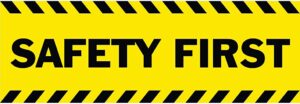
May 2022
New Employees Safety Talk
New employees often are viewed as a liability to a company or job site when it comes to working safely. One study found that employees with less than one month on the job are three times more likely to suffer a lost-time injury than employees with more than a year on the job. While new employees are at higher risk of getting injured, much of that depends on the other employees and the worksite itself.
Benefits of New Employees
A new employee often wants to follow all the safety rules especially if the majority of people on site are following the rules as well. If a new employee observes the other employees working safely they will often want to do the same. New employees also have a fresh set of eyes towards hazards on site and may have experiences of unique lessons learned from previous jobs. That being said, measures should still be taken to ensure these employees are able to and do perform work safely. 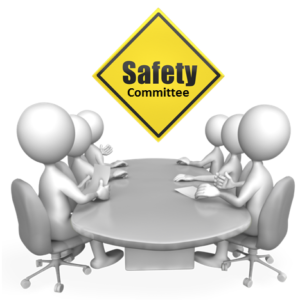
Safeguards for New Employees
Training- Even if a new employee has many years of experience on the job at another company, they still need comprehensive training. The training should cover general information about the job site, how to complete work tasks, hazards of the work, and the company’s safety procedures at a minimum.
Mentoring– Many companies use some type of mentoring program to ensure that individuals who were recently hired have someone to ask questions and get guidance from. This allows these workers to be more comfortable approaching a more experienced employee with any questions he or she might have.
Supervision– Newer employees or even just workers completing new tasks need to be supervised. Proper supervision may not necessarily mean an employee’s immediate supervisor. Depending on the task, a subject matter expert or a senior employee may be more beneficial for the supervision of newer employees. Just like mentoring, a newer employee may feel more comfortable and get more out of being supervised by someone else other than their immediate supervisor.
Summary
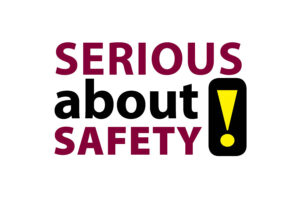 While new employees can be a liability to a company, they also can serve as a great asset to everyone around them. The odds of a new employee avoiding an injury can greatly depend on the individuals around them. Everyone starts somewhere and needs guidance in the beginning. Remember the struggles and important lessons learned as a new employee and pass that knowledge on. Safety on the job is everyone’s responsibility. Watch out for those around you and never hesitate to help out a fellow employee.
While new employees can be a liability to a company, they also can serve as a great asset to everyone around them. The odds of a new employee avoiding an injury can greatly depend on the individuals around them. Everyone starts somewhere and needs guidance in the beginning. Remember the struggles and important lessons learned as a new employee and pass that knowledge on. Safety on the job is everyone’s responsibility. Watch out for those around you and never hesitate to help out a fellow employee.
Discussion point:
What are significant hazards for a new employee on this job?
4 Focus Items for Work Area Inspections
Work area inspections are an important basic safe work practice that should be done before beginning a task. In general industry, there are many work areas that remain the same day in and day out. On the other hand, there are areas that we work in that are constantly changing.
No matter if we are in the same work area that does not change much every day or if we work in one that is constantly changing, it is important to do a thorough inspection of it. There are common hazards that affect virtually every workplace in a manufacturing setting. Four focus items to look at today before beginning work are condition of tools, organization of work areas, trip hazards, and hand hazards.
Four Focus Items for Today’s Work Area Inspection
- Tool condition – Hand tools are constantly being used during work tasks and over time they
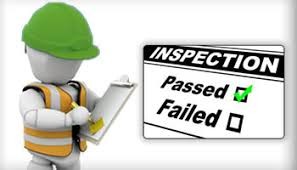 are bound to take some abuse. Often times many tools are used way past their life cycle. When tools are used despite being broken or not functioning correctly, injuries can happen. Inspect all hand tools for broken handles, chipping, bending, or just improper functioning in general.
are bound to take some abuse. Often times many tools are used way past their life cycle. When tools are used despite being broken or not functioning correctly, injuries can happen. Inspect all hand tools for broken handles, chipping, bending, or just improper functioning in general. - Organization of work area –
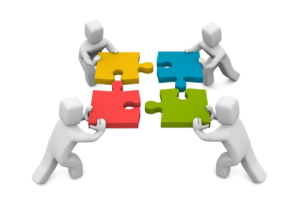 The way we have a work area setup often does not change much even when there are better ways that it could be organized. Complacency often sets in when it comes to how we choose to organize tools, materials, and equipment. Take an honest look at how your work area is set up. Are there overhead hazards? Are heavy objects that need to be lifted from the floor repeatedly? Are important parts or materials getting dirty or damaged from where they are placed? Think outside the box and evaluate how changes or a rearrangement of a work area can make it a safer and more efficient place to work.
The way we have a work area setup often does not change much even when there are better ways that it could be organized. Complacency often sets in when it comes to how we choose to organize tools, materials, and equipment. Take an honest look at how your work area is set up. Are there overhead hazards? Are heavy objects that need to be lifted from the floor repeatedly? Are important parts or materials getting dirty or damaged from where they are placed? Think outside the box and evaluate how changes or a rearrangement of a work area can make it a safer and more efficient place to work. - Trip hazards – Trips are a common cause of injuries at work. Objects on the floor, objects
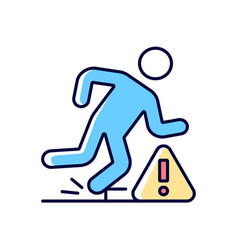 hanging from shelves, and uneven ground are just a few common examples of trip hazards in the workplace. Trip hazards are some of the easiest hazards to completely eliminate from our work areas.
hanging from shelves, and uneven ground are just a few common examples of trip hazards in the workplace. Trip hazards are some of the easiest hazards to completely eliminate from our work areas. - Hand hazards – According to the Bureau of Labor Statistics, over 1 million workers are treated in the emergency room for hand injuries each year. Some common types of injuries to our hands include burns, cuts, crushed-by, and fractures. Hazards that cause these injuries can be found virtually anywhere in our workplaces. Pinch points, moving parts, unguarded equipment,
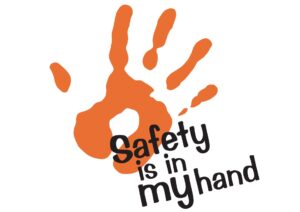 hot surfaces, dropped objects, etc. are all hazards that should be looked at when addressing hand hazards during a work area inspection.
hot surfaces, dropped objects, etc. are all hazards that should be looked at when addressing hand hazards during a work area inspection.
Summary
These four focus items are just a small list of possible items you should pay attention to when identifying and mitigating hazards during a work area inspection. Pay attention to these four focus items specifically today. It is often what we consider small things or small hazards that cause the majority of injuries. Avoid complacency when it comes to addressing any hazard in your work areas.
Discussion point: What is another example of a common type of hazard in our workplace we should look for during a work area inspection?
